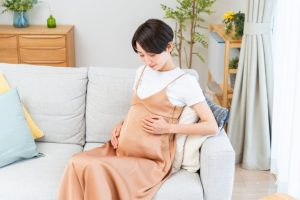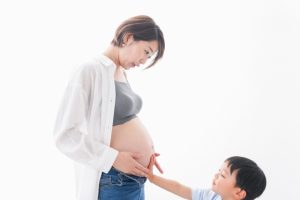- What kind of infertility treatment is IVF?
- What is the difference between in vitro fertilization and artificial insemination?
- [Pregnancy probability of IVF by age] How many people will be successful?
- Is it true that the probability of pregnancy decreases as the number of IVF treatments increases?
- Is it true that IVF has a high chance of conceiving twins?
- Is there a difference in the chance of miscarriage between natural pregnancy and IVF pregnancy?
- Is there a difference in the chance of miscarriage between artificial insemination and in vitro fertilization?
- Precautions when undergoing in vitro fertilization
- Summary
What is IVF infertility treatment?
In vitro fertilization is a treatment in which a woman’s eggs and a man’s sperm are taken from the body, fertilized by combining them in a culture solution, and then the successfully formed fertilized eggs are returned to the woman’s uterus to facilitate implantation.
Methods of in vitro fertilization include intracytoplasmic sperm injection and embryo transfer.
Intracytoplasmic sperm injection is a method of fertilization in which sperm are injected into an egg under a microscope.
Embryo transfer refers to the process of transferring an embryo back into the uterus after in vitro fertilization.
This method is necessary when infertility has occurred due to some cause, and is basically performed when infertility treatments such as timing therapy and artificial insemination have not been effective.

Although infertility is generally thought to be more prevalent in women, there are also cases of infertility in men, so it is important to investigate whether there is a cause for infertility in both men and women. The general process is as follows:
- Growing ovarian follicles
- Stimulates ovulation
- Collect eggs
- Collecting sperm and fertilizing them with eggs
- Perform embryo transfer
- Pregnancy test
What is the difference between in vitro fertilization and artificial insemination?
In vitro fertilization and artificial insemination are similar but not the same.
Artificial insemination is a method of infertility treatment in which semen from a man is taken and injected directly into the woman’s uterus for internal fertilization.
In vitro fertilization is a treatment that is performed when pregnancy does not occur through artificial insemination, so whether or not it is necessary basically depends on the results of artificial insemination.
Although it is called artificial, it is a method to allow fertilization in a more natural way than IVF, and it is merely a method to support fertilization. However, it is important to note that the probability of pregnancy is lower than with IVF.
[Probability of pregnancy through IVF by age] How many in 1 will be successful?
IVF is said to have a higher chance of pregnancy than artificial insemination, but many people are wondering how many people actually succeed. The chances of getting pregnant vary depending on age, so it’s important to know what your chances of getting pregnant are.
Now let’s take a look at the chances of getting pregnant by age.

25-29 years old: Probability of pregnancy through in vitro fertilization
The chance of pregnancy for women aged 25 to 29 is approximately 40% or higher.
At first glance, this may seem low, but it is the highest probability for IVF at this age. It is generally recommended to do it earlier, so if you are going to try IVF, it is best to visit an obstetrician-gynecologist as soon as possible.
30-34 years old: Probability of pregnancy through in vitro fertilization
The probability of pregnancy between the ages of 30 and 34 is approximately 35% to 40% or higher.
At this age, the quality of the eggs and sperm is important, so the chances are slightly lower. However, it can still be said that the chances of getting pregnant are still high.
35-39 years old: Probability of pregnancy through in vitro fertilization
The probability of pregnancy between the ages of 35 and 39 is approximately 25% to 30% or higher.
In this age group, the quality of eggs and sperm can decline rapidly from around the age of 35, which in turn reduces the chances of conception.
Especially if you have never been able to conceive by the age of 35, you will likely be recommended in vitro fertilization (IVF) which also involves testing your eggs and sperm.
40-44 years old IVF pregnancy probability
The probability of pregnancy between the ages of 40 and 44 is approximately 10% to 20%.
At this age, it may not be possible to collect eggs even if you try. If eggs cannot be collected, in vitro fertilization itself cannot be performed, and even if they can be collected, the chances of implantation are low, so the chances of pregnancy will be significantly reduced.
45-49 years old IVF pregnancy probability
The chance of pregnancy between the ages of 45 and 49 is less than 5%.
The following factors may be contributing to a low chance of getting pregnant:
- Unable to collect eggs
- The eggs do not grow even after hormone therapy
- Even though the follicles are enlarged, they do not contain eggs.
Due to these factors, the chances of success are extremely low.
Is it true that the chances of getting pregnant decrease with each IVF procedure?
To put it simply, it is generally believed that the chances of pregnancy do not decrease even if the number of procedures is increased to three or four.
Therefore, if implantation does not occur, you can try IVF up to the fourth time, but if you are not able to become pregnant after further attempts, there may be a problem with the egg, sperm, or uterus.
Is it true that IVF increases the chances of conceiving twins?
The reason why the probability of having twins is said to increase is because multiple embryos are transferred. This may be a dream come true for couples who wanted to have twins, but be careful because multiple pregnancies can lead to babies being born with low birth weight, premature birth, and a greater burden on the mother.
Is there a difference in the chance of miscarriage between natural conception and IVF pregnancy?
Basically, the chance of miscarriage with IVF is about 20%. On the other hand, the chance of miscarriage with natural pregnancy is about 15%, so although it is slightly higher, natural pregnancy is less likely to cause miscarriage.
Is there a difference in the chance of miscarriage between artificial insemination and IVF?
In conclusion, it is said that there is not much difference in the probability of miscarriage between artificial insemination and IVF. Since it is easier to get pregnant with IVF than with artificial insemination, IVF is recommended in terms of the probability of getting pregnant.
Things to note when undergoing in vitro fertilization
Here are some things to keep in mind when undergoing IVF:
Ovarian hyperstimulation syndrome
This is a risk that occurs when using medication to stimulate the ovaries and make ovulation easier. The ovaries swell and excessive hormones cause abdominal and pleural fluid to accumulate.
Although the possibility of developing ovarian hyperstimulation syndrome is low, if it becomes severe it can lead to diseases such as thrombosis and kidney failure, so be careful. If you experience symptoms such as abdominal distension, pain, nausea, or reduced urination, consult a doctor immediately.
There is a risk of bleeding or infection during egg collection.
When performing in vitro fertilization, it is necessary to collect eggs, but in rare cases, excessive bleeding may occur or bacteria in the vagina may invade the pelvis, causing fever and other symptoms of infection. If excessive bleeding occurs, blood transfusion or abdominal surgery may be required. Antibiotics may be administered to prevent these risks.
Insurance is not applicable
In vitro fertilization is generally not covered by insurance, so you will have to pay the full medical expenses yourself. If the embryo is successfully implanted in one session, the cost will be minimal, but if you plan to undergo multiple sessions, be careful about your budget.
summary
IVF is an infertility treatment when artificial insemination has not worked to conceive.
Although it does not necessarily mean you will be able to get pregnant, it does increase your chances of getting pregnant compared to artificial insemination, so couples should discuss and decide whether to do it. However, if you do decide to do it, it is recommended that you do it as early as possible. The older you are, the lower your chances of getting pregnant, so it is advisable to do it as early as possible to ensure a successful pregnancy.
If you are able to conceive successfully, please consider NIPT (non-invasive prenatal testing) to check for the possibility of your baby having chromosomal abnormalities.
[References]
- Sapporo Medical University Department of Obstetrics and Gynecology – IVF Related Q&A
- Diamond Online – “If you want to get pregnant, hurry up.”
Article Editorial Supervisor

Dr Hiroshi Oka
NIPT specialist clinic, MD
Graduated from Keio University, School of Medicine
 中文
中文






















